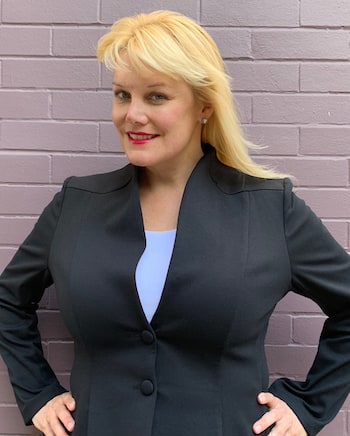 Robin D. Gross is founder and Executive Director of IP Justice an international civil liberties organization that promotes balanced intellectual property rights and protects freedom of expression (www.ipjustice.org). An attorney, Ms. Gross advises policy makers throughout the world on the impact of intellectual property rules proposed to national legislatures and international treaties and trade agreements. Ms. Gross lectures at international seminars, law schools and universities on cyberspace legal issues including digital copyright, fair use, freedom of expression, privacy and Internet governance.
Robin D. Gross is founder and Executive Director of IP Justice an international civil liberties organization that promotes balanced intellectual property rights and protects freedom of expression (www.ipjustice.org). An attorney, Ms. Gross advises policy makers throughout the world on the impact of intellectual property rules proposed to national legislatures and international treaties and trade agreements. Ms. Gross lectures at international seminars, law schools and universities on cyberspace legal issues including digital copyright, fair use, freedom of expression, privacy and Internet governance.
Ms. Gross also runs a boutique private law practice Imagine Law that handles intellectual property rights and technology legal matters. In 2020 she was elected to the board of directors for the San Francisco Bay Area Chapter of the Internet Society (ISOC), where she serves as the organization’s Policy Chair. She also teaches international intellectual property rights as an adjunct professor at Santa Clara University School of Law
From 2011-2013 she was the elected Chair of the Non-Commercial Stakeholders Group (NCSG) at the Internet Corporation for Assigned Names and Numbers (ICANN) and she has served on NCSG’s Executive Committee since 2013. She previously served on the Executive Committee for FreeMuse, an independent international organization based in Copenhagen that advocates freedom of expression for musicians and composers worldwide. From 2006-2008 served Ms. Gross as a Member of the Advisory Group to the United Nations Internet Governance Forum (IGF).
In July 2004 Managing Intellectual Property Magazine named Ms. Gross as one of “2004’s Top 50 Most Influential People in Intellectual Property in the World.” She was called to testify before the US Copyright Office during the 2003 and 2000 Digital Millennium Copyright Act (DMCA) Rulemaking Hearings. Before founding IP Justice in 2002, Ms. Gross was the first Staff Attorney for Intellectual Property with the cyber-liberties organization the Electronic Frontier Foundation where she began the group’s campaign in intellectual property litigation in 1999. While at EFF, she defended Morpheus P2P file-sharing software developers in the district court and represented consumers over their right to use digital VCRs. In 1999 Ms. Gross led EFF’s defense of web publishers of DeCSS computer code that unlocks DVDs (including Norwegian teen Jon Johansen). She also represented 2600 Magazine (against the major movie studios) and Princeton scientists (against the recording industry) over publication of technical information banned by the DMCA. In 2001 she developed EFF’s Open Audio License, an early public license for music that permits public sharing in exchange for artist attribution.
California’s legal newspaper The Daily Journal selected Ms. Gross as one of “California’s Top Ten Most Influential Attorneys in 2001”. She has appeared as a guest legal expert on TV and radio news stations including CNN, BBC, NPR, PRI, Tech TV, NHK, DRS, VOA, and CBC. Ms. Gross has been quoted in the New York Times, Wall Street Journal, Washington Post, USA Today, Business Week, Wired News, Associated Press, Reuters, Financial Times, Billboard and other media outlets.
A 1998 graduate of Santa Clara University’s High Technology Law Program, Ms. Gross is licensed to practice law in California. A Michigan native, she graduated from Michigan State University’s James Madison College in 1995 with degrees in political philosophy and international relations.